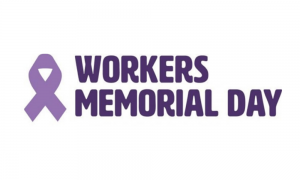
Bernardine Evaristo is the multiple award-winning British author of eight books and numerous other works spanning a variety of genres, including novels, poetry, short stories, and theatre drama, predominantly exploring aspects of the African Diaspora.
She wrote two critically-acclaimed novels, including Lara (1997), set in multicultural Roman London in the 3rd century CE and tracing the roots of an English-Nigerian-Brazilian-Irish family over 150 years, three continents and seven generations.
In 2001 she published the verse novel, The Emperor’s Babe, which, in 2010, The Times selected as one of the ‘100 Best Books of the Decade’. In 2019, she was awarded the Booker Prize for her novel, ‘Girl, Woman, Other’.
Bernadine has received several honours and awards, being elected as a Fellow of the Royal Society of Literature in 2004, and a Fellow of the Royal Society of Arts in 2006. In 2009 she received an MBE in the Queen’s Birthday Honours List and an OBE this year for her services to literature. She joined the governing Council of the Royal Society of Literature in 2016 and was Vice-Chair from 2017-2020.
In an interview with the Short Story Award, Bernardine Evaristo opened up about the challenges she faced in the early part of her career and the importance of never giving up in the face of rejection/adversity.
She said: “I’ve had plenty of rejections in my career, from the first manuscript I sent out in 1991. Rejection can clarify and strengthen your resolve to achieve your goals, if you don’t let it crush you. Learning to deal with rejection is preparation for success, and if you can’t drag yourself up after a setback, then perhaps writing isn’t a career for you”.
https://www.shortstoryaward.co.uk/news/interview-bernardine-evaristo/
Aratrust shares the same outlook as Bernardine on the lack of representation within UK literature and publishing and how decision-makers in the industry must go beyond ‘token’ gestures to drive forward real change.
“The literature sector needs to offer its own solutions to a culture that makes it hard for black writers to be published or work at senior levels in publishing houses”, says Bernadine. “It really is quite simple: open the doors and bring us in, not as a philanthropic exercise, but because we will add all kinds of value to the industry. We need to have several seats at the publishing table for serious and lasting change to take root, as opposed to some of the more tokenistic gestures. The prevailing white publishing culture won’t shift enough if we’re always the only person in the room offering a black or Asian perspective within popular culture.”
https://www.shortstoryaward.co.uk/news/interview-bernardine-evaristo/
Aratrust also supports Bernardine when she reflects on the progress of eradicating racism from our society and acknowledges there is still plenty of work to do.
“Race has been on the agenda,” says Bernardine, “and we were starting to confront some of the inequalities in our society. Then Brexit happened, and people’s inner bigots were released, and there’s been a return to front-line, street-level racism, which is terrible. And we know that we have to be so careful about how we handle this situation because of the memories of the 1930s. But yes, I’m hopeful. OK, it took 50 years, but the fact that I have won the Booker with a book about 12 different black women – a very queer, female, experimental book – I think that’s a sign that our society has changed considerably.”
https://www.newstatesman.com/bernardine-evaristo-interview-booker-prize-joint-win
An article from The Guardian highlights the massive diversity problem the UK publishing industry is currently facing, as a survey of over 6,432 individuals working across 42 different organisations revealed that only 11.6% of respondents identified as minority-ethnic, staggeringly unrepresentative of our multicultural UK, and especially London, where 14% and 40.2% of people identified as minority-ethnic respectively.
The lack of representation of minority-ethnic writers and publishers across all genres of literature has been well-documented but, perhaps, research commissioned by the UK’s largest children’s reading charity, BookTrust, is the most shocking.
The research highlights the consistent under-representation of British Authors ‘of colour’ within the industry for almost a decade with the main findings of:
- In 2017, fewer than 6 per cent of children’s authors and illustrators were ‘people of colour’ (5.6%)
- In 2017, less than 2 per cent of these were British ‘people of colour’ (1.98%)
- Between 2007 and 2017, white children’s books’ creators had around twice as many books published compared to creators ‘of colour’. https://www.booktrust.org.uk/news-and-features/news/news-2019/less-than-two-per-cent-of-published-authors-and-illustrators-in-the-uk-are-british-people-of-colour-says-new-booktrust-research/
While these statistics are clearly disheartening and show that there is much work to be done, Aratrust welcomes the proposed initiatives and strategies from UK arts councils and publishing houses and associations, to tackle the under-representation of minority-ethnic writers and publishers in the industry.
Sarah Crown, the director of literature at Arts Council England has vowed to combat the lack of representation saying: “We are pleased to support BookTrust’s three-year plans to provide vital opportunities for writers and illustrators of colour across the country, with the aim of increasing the number published in the UK from less than 6% overall, to 10% by 2022.”
The Publishers Association has echoed this commitment adding that significant progress still needed to be made to improve racial and regional diversity setting a target of 15% of employees being minority-ethnic by 2022. https://www.theguardian.com/books/2019/jan/16/publishers-failing-to-improve-racial-and-regional-diversity-survey-finds
Aratrust commends the work already done and the future commitment to tackling the lack of diversity and representation by the world’s leading trade publisher, Penguin Random House UK.
Their progress has already included:
- offering a paid editorial internship called The Scheme, for candidates from Black, Asian, Minority-Ethnic, and socio-economically disadvantaged backgrounds, which, in 2021, they will be expanding to other departments including Marketing, Publicity and Design;
- running regular interactive workshops for young people across the country, designed to bring to life the different roles and opportunities available, with over 800 young people having taken part in such workshops in 2020;
- all of their internship and placement opportunities being fully paid. They offer over 450 two-week placements annually, offering subsidised accommodation for those joining from outside London;
- building a culture where everyone feels included, running a series of training sessions and workshops for their employees including hosting unconscious bias training sessions, to training a network of employee ‘Guardians’ to act as confidential sounding boards to colleagues on any concerns they might have.
https://www.penguin.co.uk/company/creative-responsibility/Inclusion.html


